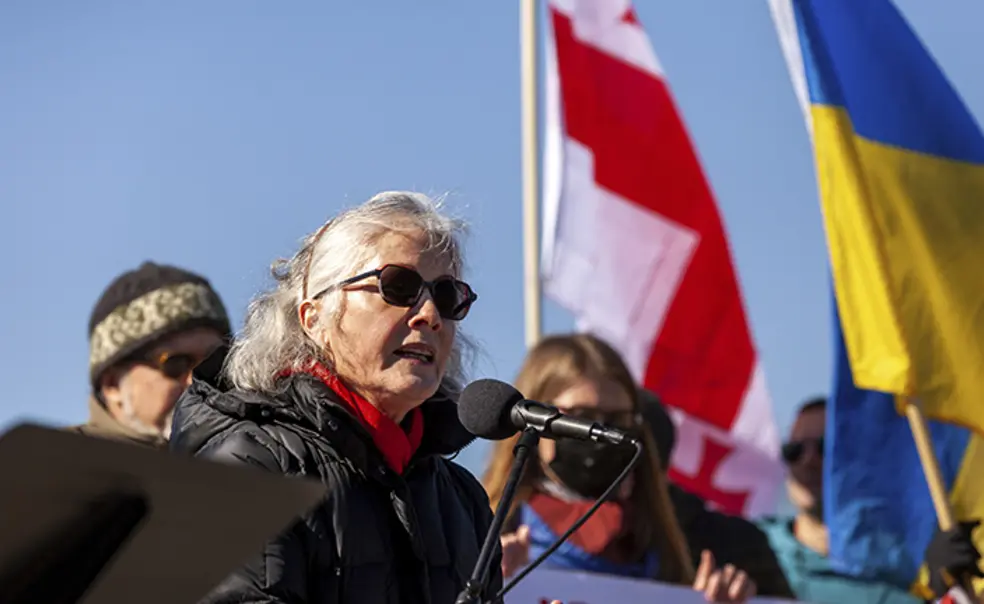March 15: Marie Yovanovitch ’80 on Military Assistance to Ukraine
Former U.S. ambassador to Ukraine Marie Yovanovitch ’80 said that as the international community decides how to help Ukraine, it needs to weigh the risk of expanding the war with the question, “What does it say about us and our values if we don’t provide greater military assistance?” — MSNBC
Declan Farmer ’20 scored two of the five goals against Canada that won the U.S. Paralympic sled hockey team its fifth gold. Farmer is now the all-time U.S. leader for Paralympic points and assists. — WTSP Tampa
Harvard professor Randall Kennedy ’77 criticized both critical race theory and the campaign against it, saying that the people attacking it “have concocted a boogeyman.” — Current
A new study by MIT neuroscientist Earl Miller *90 suggests that electric fields may be more reliable in holding working memory in the brain than individual neurons. — Science Daily
“Contrary to claims that it is somehow too early to call, Ukraine isn’t just winning the battle for hearts and minds online, it has already won. And now it’s too late for Russia to change the narrative.”
— New America strategist and author P.W. Singer ’97, describing 10 “persuasion messaging themes” Ukraine is using on social media. — Politico
Writer and professor Edmund Keeley ’48, who taught comparative literature at Princeton and “brought an appreciation of modern Greek literature and culture to the English-speaking world,” died Feb. 23 at 94 years old. — The New York Times
New Yorker editor David Remnick ’81 discussed Ukraine with Princeton history professor Stephen Kotkin, who explained Russia’s belief in its own exceptionalism, Vladimir Putin’s approach to power, and more. — The New Yorker
New Yorker staff writer and author Alexis Okeowo ’06 said that refugees from Ukraine are being welcomed into European countries in a way previous refugees from the Middle East and Africa were not. — KCRW
University of Richmond men’s basketball coach Chris Mooney ’94 led his team to an NCAA Tournament spot by winning the Atlantic 10 championship game. — The Richmond Times-Dispatch
Subscribe to PAW’s Alumni in the News emails at paw.princeton.edu/email.












1 Response
Norman Ravitch *62
3 Years AgoConscience or Cowardice?
Shakespeare has Hamlet say, "Conscience doth make cowards of us all." When it comes to our measures to save the Ukrainian people from genocide we cannot cite Hamlet. It is not conscience that makes us shed crocodile tears. It is cowardice that does so. And we will bear the guilt and shame forever.